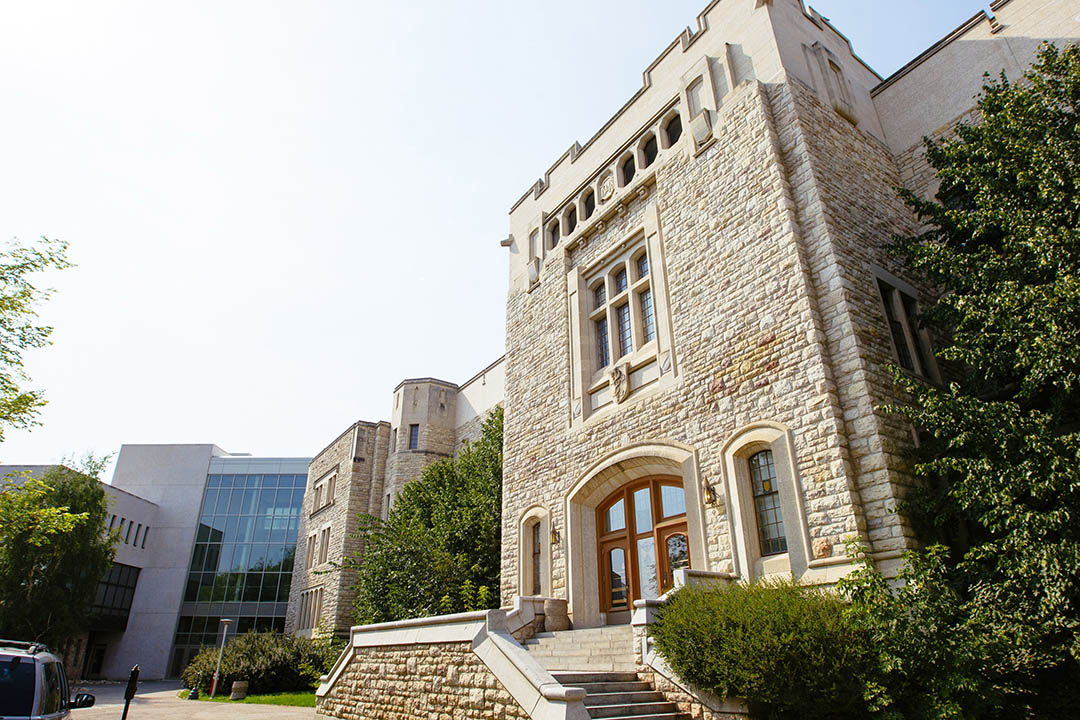
USask virtual education supports health-care workers during pandemic
In the early days of the pandemic, the College of Medicine’s Division of Continuing Medical Education (CME) quickly became a go-to resource for health-care professionals, offering educational webinars about the emerging virus, reaching thousands of people from all over the world.
By Amanda WoroniukThe first webinar was in April 2020 and the webinar series gained traction among Saskatchewan health-care workers by providing convenient, relevant education about COVID-19 within the province.
“We needed to make virtual education easy, efficient and effective for busy health-care professionals,” said Darla Schiebelbein, CME events co-ordinator.
Once the University of Saskatchewan (USask) shifted to online-only events, the CME team quickly became experts in using the WebEx video conferencing platform.
“By the time we launched these webinars, the CME team was knowledgeable and experienced in virtual delivery to offer a seamless registration process, and virtual learning experience for both presenters and learners.”
Since then, the CME team has hosted 24 COVID-19 webinars with nearly 75 medical experts and more than 3,600 participants. The team helped attendees from across the country and around the globe, including the Philippines, United Arab Emirates and several African countries.
Part of the success stems from local presenters—including faculty from the College of Medicine—who were willing to share their expertise.
“It was important to highlight local faculty,” said Dr. James Barton (MD), associate dean, continuing medical education. “They (experts) were seen as trustworthy advisors, coaches and sources of information. When you have people doing global-level international work (like faculty and researchers at the Vaccine and Infectious Disease Organization at USask), I think it’s our responsibility to highlight all that the college has to offer.”
“The overwhelming response from our presenters was incredible,” Schiebelbein added. “They were invested to support their colleagues through a challenging time in their career.”
As the webinars were held virtually, CME was able to offer sessions to attendees from any location, and free of charge.
“Geographically, virtual delivery increased learner registrations significantly in rural parts of the province. No travel and no additional costs offered people more opportunity to learn from medical experts, right within their own province,” said Schiebelbein.
While the webinars were primarily attended by physicians, significant numbers of other health-care professionals also participated, including nurses and pharmacists.
“We needed to get the education (on COVID-19) out there, so that the patients and the families in the province would also receive better care for all of us,” said Barton.
The CME team also added internal medicine webinars targeted at internists working on the COVID-19 wards in hospitals, followed by vaccine uptake webinars. The Saskatchewan Health Authority recognized the good work the CME team was doing with the COVID-19 webinars and identified these as areas of educational need.
Overall, the CME team has received positive feedback from these webinars. The success of the COVID-19 series is due to the hard work and commitment of the CME team. Barton sees the experience gained by offering only virtual events as a benefit.
“CME is here to really support all health-care workers but also patients and family,” he added. “The webinar series was a great way because we couldn't meet in person. To be able to reach people virtually was a real advantage. I thought my team did a wonderful job of becoming experts at delivering those (WebEx) kind of sessions very quickly.”
“We now host our regular conferences in a virtual environment, and have made good partners and friends,” he added. “We see this as paying huge dividends as we go forward post-COVID as we return to normal.”

